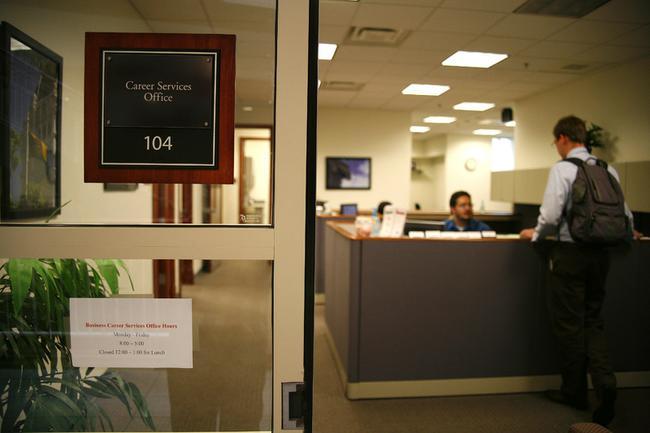With summer around the corner, many students are finalizing plans on summer internships. Career advisers report that because of the recession in the past few years, paid internships are few and highly competitive, but unpaid internships are fairly plentiful. This imbalance in options leaves students with the responsibility of weighing the value of experience.
Donna Monning, an academic advisor in the College of Arts and Science, said though many internships available to students are unpaid, the experience could result in a better paying job in the future.
“To give them that real life experience is so differential on a resume,” she said. “Unpaid internships can lead to a better paying job, so you have to look at the give and take.”
Monning said within the Student Success Center, students can fill out paperwork and get one credit hour for an internship, though internships are not required for a major within the school.
“Students in Arts and Science find internships all over the board,” she said. “Even if it is not an internship within their major, sometimes it’s just that next step towards what the end goal is going to be.
All students pursuing a bachelor’s degree in business administration are required to complete an internship within the field, Lynsie Steinley, director of the Professional Development Program in the Trulaske College of Business, said.
“We require this so students develop the professional competencies necessary for success in the business world,” Steinley said. “Some competencies need to be learned by doing.”
She said these internships have only been required since 2008, so it is hard to tell if the amount of paid internships has been affected by the economy. Steinley explained there are many opportunities available for business majors within Missouri and around the world.
“St. Louis employers like Boeing and Edward Jones have been particularly supportive,” she said. “We also had quite a few internships abroad this semester.”
Another program that will soon be requiring internships is the agroforestry degree within the Department of Forestry.
Michael Gold, the associate director of the program, said it is a brand new graduate program that will have its first students this fall. He said the internship is required because, as the program is based online, they wanted the students to gain more real life experience.
“Given the fact of the limitations that it’s online we want to build in somewhere where they’re applying their agroforestry expertise into a real situation before they walk off with a masters,” Gold said.
He said the internship would be tailor-made to the specific student’s interest.
“Depending on what their interests are, we can have them collaborate with a researcher or a farmer, focused on agroforestry and relevant to the degree.”
Barbara Willis, the new assistant director of Career Services in the School of Journalism, said though most opportunities are for unpaid internships, she finds many students seek out ones that are paid.
“Places that once had paid internships now either have gone completely away from internships or have gone to unpaid,” she said.
She said many of the unpaid positions are in smaller media outlets.
“I find the greatest number of internships are in small towns across the country,” she said. “People are saying newspapers are dead but that’s just not true.”








